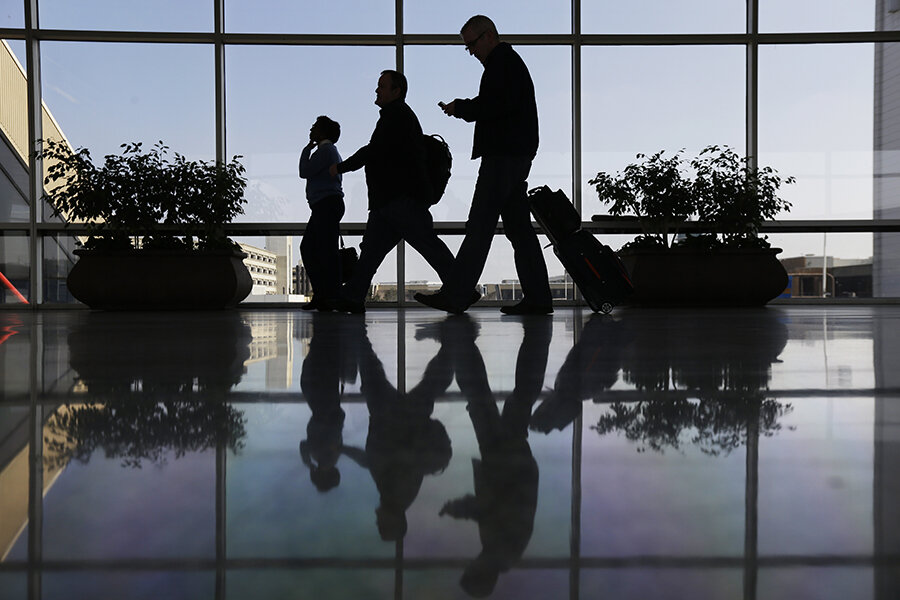US investigating major airlines for collusion on seat availability
Loading...
| Washington
The US government is investigating possible collusion among major airlines to limit available seats, which keeps airfares high, according to a document obtained by The Associated Press.
The civil antitrust investigation by the Justice Department appears to focus on whether airlines illegally signaled to each other how quickly they would add new flights, routes and extra seats.
A letter received Tuesday by major US carriers demands copies of all communications the airlines had with each other, Wall Street analysts and major shareholders about their plans for passenger-carrying capacity, or "the undesirability of your company or any other airline increasing capacity."
The Justice Department asked each airline for its passenger-carrying capacity both by region, and overall, since January 2010.
Justice Department spokeswoman Emily Pierce confirmed that the department is looking into potential "unlawful coordination" among some airlines. She declined to comment further or say which airlines are being investigated.
On a day when the overall stock market was up, stocks of the major US airlines ended the day down 1 to 3 percent on news of the investigation.
American Airlines, Delta Air Lines, Southwest Airlines and United Airlines all said they received a letter and are complying. Several smaller carriers, including JetBlue Airways and Frontier Airlines, said they had not been contacted by the government.
The airlines publicly discussed capacity early last month in Miami at the International Air Transport Association's annual meeting. After hearing about that meeting, US Sen. Richard Blumenthal, D-Conn., requested a Justice Department investigation.
The department had tried to block the most recent merger, the 2013 joining of American Airlines and US Airways, but ultimately agreed to let it proceed after the airlines made minor concessions.
Some Wall Street analysts argue that to remain financially strong, airlines should not expand capacity faster than the US economy. And from January 2010 to January 2014, they didn't.
In that 4-year period, capacity on domestic flights was virtually flat while the US economy grew about 2.2 percent per year. From January 2014 to January 2015, however, the airlines expanded by 5.5 percent, topping the economy's 2.4 percent growth for 2014.
Thanks to a series of mergers starting in 2008, America, Delta, Southwest and United now control more than 80 percent of the seats in the domestic travel market. They've eliminated unprofitable flights, filled more seats on planes and made a very public effort to slow growth to command higher airfares.
It worked. The average domestic airfare rose an inflation-adjusted 13 percent from 2009 to 2014, according to the Bureau of Transportation Statistics. And that doesn't include the billions of dollars airlines collect from new fees. During the past 12 months, the airlines took in $3.6 billion in bag fees and $3 billion in reservation-change fees.
That has led to record profits. In the past two years, US airlines earned a combined $19.7 billion.
This year could bring even higher profits thanks to a massive drop in the price of jet fuel, airlines' single highest expense. In April, US airlines paid $1.94 a gallon, down 34 percent from the year before.
That worries Wall Street analysts and investors. Cheap fuel has led airlines to make money-losing decisions in the past, rapidly expanding, launching new routes and setting unrealistically low fares to lure passengers. Airlines already flying those routes would match the fare, and all carriers would lose money.
Such price wars are long gone, but today's low fuel costs along with recent comments from airline executives have given the market jitters.
Airline stocks plunged in May after the chief financial officer of Southwest said at an industry event that the carrier would increase passenger-carrying capacity by 7 to 8 percent, an increase over an earlier target.
Wolfe Research analyst Hunter Keay, who hosted that May 19 conference, told investors in a note afterward that the big airlines are unhappy to be restraining growth while low-cost airlines like Spirit grow much faster. He urged the major airlines to "step up" and cut routes for the good of the industry.
On June 1, Southwest CEO Gary Kelly said his airline would cap its 2015 growth at 7 percent. That sparked a rally in airline stocks, as investors were more assured that capacity growth would be limited.
Keay said Wednesday that he had not been contacted by the government and doesn't think the airlines have been acting inappropriately.
"The analyst community is bringing up the subject. You certainly can't fault an airline executive for responding to the question," Keay said. "The capacity continues to grow at the airports people want to fly to and air travel remains a particular good value for the consumer, especially for the utility that it provides."







